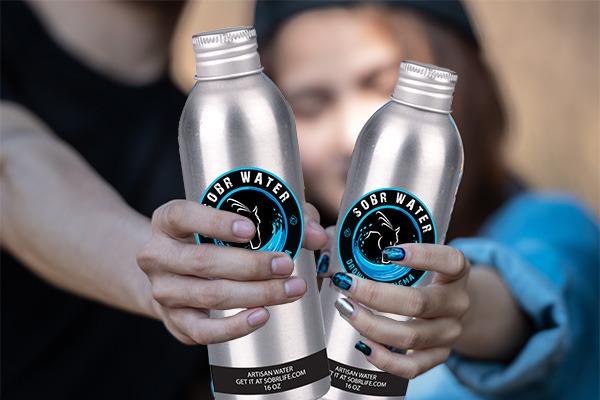The Diseasing of America and its Fallout
Our Continuing Campaign to Drown the Stigma Around Addiction
We hope you’ve been with us for a while, but whether new to SOBRLIFE or old, welcome to our series of blogs on the evolution of addiction treatment and recovery in the US! Today, we’re diving into an incredibly important topic: ‘The Diseasing of America,’ a watershed book on the patterns and psychology that informs the modern behavioral health industry. This isn’t just another healthcare discussion; it’s a look into how we perceive and treat addiction and mental health issues, for all of us.
And let’s get a spoiler alert out of the way here: we support recovery, for all!
As someone who’s in recovery from all kinds of substances alongside alcohol abuse, I understand firsthand the complexities of addiction, and just as much, recovery. Writing for SOBRLIFE.com has given me and our team a platform to share our journies and insights with a community that truly understands the ups and downs of recovery.
So, let’s get into it and see what we can learn from Peele’s work and how it can help us rethink our approach to behavioral health, the US addiction industrial complex, how America’s children are being treated, and what a better path forward could look like.
A Look at Stanton Peele and His Critique of the Disease Model

Now, let’s dig into what Peele is really getting at with his plainspoken and courageous critique of the disease model. At the heart of “The Diseasing of America,” Peele argues that treating addiction strictly as a disease can strip individuals of their agency and responsibility.
Peele’s main beef with the disease model is that it tends to ignore the personal, social, and environmental factors that play a crucial role in addiction. For example, someone’s background, trauma, and current life circumstances are often significant contributors to their substance use. By focusing solely on the biological aspects, we risk missing out on these critical elements.
He also points out that the disease model can lead to a one-size-fits-all approach to treatment, which isn’t effective for everyone. Peele advocates for a more nuanced and individualized approach that takes into account the whole person, not just their symptoms.
In essence, Peele is calling for a shift in how we view and treat addiction. Stanton Peele’s work not only helps in developing better treatment strategies but also empowers anyone seeking to improve their lives with respect to substance abuse as being a part of the broader recovery movement.
Going Back: A Brief History of the Treatment of Addiction
Historically, the disease model of addiction became popular in the mid-20th century, largely due to the work of organizations like Alcoholics Anonymous and the American Medical Association. This model treats addiction as a chronic, relapsing brain disease, which can reduce stigma by framing it as a medical issue rather than a moral failing.
However, Peele argues that this model can also limit our understanding and treatment of addiction, potentially leading to ineffective or incomplete care.
Peele’s perspective encourages us to look beyond the disease model and consider the broader context of addiction. He suggests that understanding the individual’s life experiences, environment, and personal choices is crucial for effective treatment and recovery.
Questioning the Underlying Assumptions of Addiction Medicine
By questioning fundamental assumptions of current addiction treatment models and considering alternative works like Peele’s, we can reevaluate and improve existing treatment approaches.
Peele goes beyond addiction medicine in his work as well, looking at the rising number of young Americans being diagnosed with early onset bipolar disorder, and oppositional defiant disorder, and how the ADHD establishment has spread in its influence and scope.
He believes our society has allowed the treatment industry to convince us of not only the absolute scientific nature of the ‘disease concept,’ but also of the pharmaceutical industry’s influence on America’s children which is not only apparent but also carefully documented.
The State of Behavioral Healthcare as a Crisis in America

The current state of behavioral healthcare in America is very much a mixed bag. On one hand, there’s been significant progress in recognizing and addressing mental health and addiction issues. Public awareness campaigns, better access to treatment, and advancements in medical research have all contributed to a more informed and supportive environment for those struggling with these challenges.
However, despite these advancements, the system still has many gaps and shortcomings. According to recent statistics from the National Alliance for the Mentally Ill (NAMI), just over one in five Americans experiences mental illness in a given year, yet less than half receive the necessary treatment.
The situation is even more dire for those dealing with substance use disorders; many people who need help don’t get it due to factors like stigma, lack of access to care, and insufficient funding for treatment programs.
The Impact of ‘The Diseasing of America’ on Modern Practices
Stanton Peele’s work has had a significant impact on how we think about and approach addiction medicine, particularly in critiquing the traditional disease mode and how people quit addictions. Over the years, his ideas have influenced many professionals in the field, leading to a gradual shift away from the strict disease model towards more comprehensive and individualized care.
One of the key areas where Peele’s influence is evident is in the growing acceptance of holistic and alternative treatment methods. More and more treatment centers are incorporating these approaches into their programs, recognizing that a one-size-fits-all model simply doesn’t work for everyone.
There’s also been a notable increase in the emphasis on mental health and wellness as part of the recovery process. Peele’s work has helped highlight the importance of addressing mental health issues alongside addiction, leading to more integrated treatment plans that consider the whole person.
By challenging the status quo for the past three decades, Stanton Peele has paved the way for a more inclusive and compassionate approach to addiction treatment.
The Goal: Doing Better at How We Treat Addiction
So, what’s next? How can we continue to improve behavioral healthcare in America? Here are a few suggestions inspired by Peele’s insights and my own experiences:
- Promote Mental Health and Wellness: Mental health is a crucial part of the recovery process. By integrating mental health support into addiction treatment, we can help individuals achieve long-term recovery and overall well-being.
- Support Community-Based Initiatives: Community and peer support play a vital role in recovery. We should continue to build and support these networks to provide individuals with the resources and encouragement they need.
- Join the SOBRLIFE.com Movement: Here at SOBRLIFE.com, we’re all about supporting each other on our recovery journeys. Join our community and connect with others who understand what you’re going through. Together, we can make a difference. We also support the ‘recovery for all’ movement, advocating for accessible and inclusive treatment options for everyone.
By adopting these strategies, we can work towards a healthier, more effective approach to behavioral healthcare. While in most cases at drug treatment centers and sober living facilities, MAT medications are allowed, recovery zealots who have mistaken complete abstinence as the only way still hold too much sway in treatment and 12-step circles.
Help Us to Drown the Stigma and Join the SOBRLIFE Movement!

In my own life, I have seen firsthand how powerful it can be to get to the root causes of addiction and then embrace advocacy for others who have yet to achieve clean and sober time. The way forward isn’t easy, but with the right support and resources, it’s more than possible.
Plus it helps to stay hydrated in recovery, with a great way of making your statement of support!
Join the SOBRLIFE.com community, check out our latest fresh and clean clothing collections, and keep an ear to the ground for our upcoming release of SOBR WATER! Become part of a movement that believes in recovery for all. Together, we can (and will) make a real difference.
Thanks for reading, and remember, stay strong and keep moving forward!
